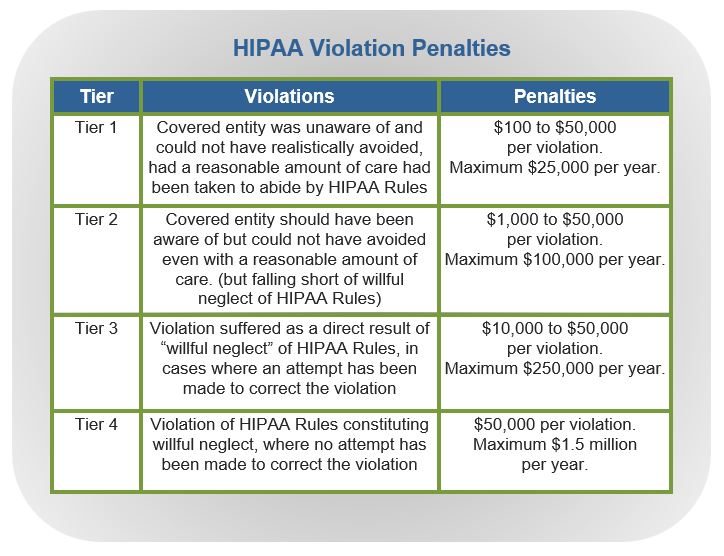The High Cost of Saving Money on Your Dental IT – Part 3
This is part 3 of a 4-part series on The High Cost of Managing Your Own Dental IT.
How much is it actually costing your dental practice to manage your own IT or to rely on a single IT technician or employee?
We outlined several key factors dental offices should consider in our first blog of this series, and in our second blog we brought to light some of the actual costs to your dental practice.
We follow up in this third blog by reviewing the following factors that dental practices should consider, as well as the potential cost of each, both financially and from a resource standpoint:
- Encrypted transmissions of patient data
- Secure and protected email
- Compliance and security training
- Up-to-date software with patching and security updates
Encrypted transmissions of patient data
 Encrypted transmissions of patient dataDental office’s email documents back and forth to insurance providers, referring doctors, labs, pharmacies, etc. on a daily basis. Surely, the entity your office is sending information to has standards in place to ensure data is protected and safe, right? Sadly, no. Not always.
Encrypted transmissions of patient dataDental office’s email documents back and forth to insurance providers, referring doctors, labs, pharmacies, etc. on a daily basis. Surely, the entity your office is sending information to has standards in place to ensure data is protected and safe, right? Sadly, no. Not always.
It is on you and your staff to make sure your office sends information in the proper, secure manner and that the data is protected and safe. Do you know if your email is encrypted? Are you sure the facility you email patient data to is using an appropriate HIPAA-compliant protocol? Or, do they just use a Dropbox or free Gmail account?
These are some of the considerations you and your staff need to be aware of and properly trained to assess. HIPAA regulations require that healthcare providers protect the privacy of patient data, and the cost of a breach can be severe. Do you want to trust this to a general IT technician or staff member?
Secure and protected email
What about the emails your office receives on a daily basis? Who checks to make sure there are no viruses or malware inside the email? What if it’s a scam and your office personnel have not received training about how to spot suspicious emails? Perhaps the referring doctor you frequently communicate with had their account hacked and has asked your office for the phone number of a mutual patient you were just discussing? What if the hacker calls that patient, pretending to be your office, and asks for his/her social security number and payment information in order to schedule a specialty appointment? Sadly, we have seen this happen.
We’ve worked with hundreds of dental practices and have heard many similar frightening stories from offices who thought they could manage their own email protection protocols or trusted their website builder to handle it. Your website builder has no recourse or responsibility if the email they set up for you causes irreparable damage to your office or practice.
Compliance and security training
Employees are a dental office’s first and most important line of defense. However, they are also often the most vulnerable to scams, security breaches, and cyberattacks. Without the proper employee training and standards of compliance, your practice could be at even greater risk.
Dentist offices are increasingly targeted by cybercriminals, and healthcare data breaches have continued to rise over the past 10 years with more breaches reported in 2020 than ever before. According to HIPAA Journal’s healthcare data breach statistics, hacking/IT incidents are the primary culprit of today’s healthcare security breaches while unauthorized access/disclosure incidents are also a common cause.
This is very concerning especially given the potentially large financial penalties for HIPAA non-compliance violations. Not to mention the high cost to your practice’s reputation and to your business.

Dental practices can’t afford to risk their financial stability and their reputation due to a lack of HIPAA compliance and/or proper employee security training.
If you’re curious whether your dental practice is following HIPAA best practices and security standards, check out our free 20-point HIPAA compliance checklist to see how your office measures up.
Up-to-date hardware, software, patching, and security protocols
Finally, let’s consider the dental office computers. How long have you been using that computer at your desk? Maybe it only seems like a few years, but did you know that in just a few years technology basically doubles in advancements? That computer you purchased 4 years ago, could be so slow now it causes problems to base production numbers while waiting on the software to load. This same could be true for servers and networking equipment as well.
Did you know Microsoft releases a Windows update almost daily to protect systems from newly found threats? Does someone install them every night for every computer in the office?
There are also updates that can accidentally break dental office software such as Dentrix, Open Dental, etc. How does your office know which ones to install and when?
These are just some of the issues dental offices face when attempting to manage IT and security components on their own.
Give yourself the gift of peace of mind
How much can you afford to pay for failing to properly adopt even one of these critical items above? Are you putting your practice at risk by managing your own IT? How much is your reputation worth to you?
You can free yourself from these concerns and give yourself peace of mind when you partner with Digital Technology Partners. We’ve been serving and protecting dental offices throughout the southeast for more than 15 years. Our team of dental technology experts will manage all aspects of your dental IT from office design and setup, cybersecurity and HIPAA consulting, and troubleshooting & resolution along with reliable service and support. We become part of your team and work as hard as you do to make sure your office runs smoothly, day in and day out.
Contact us to schedule a free dental office evaluation and give yourself the gift of peace of mind.





